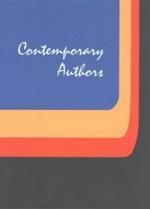|
This section contains 9,376 words (approx. 32 pages at 300 words per page) |

|
SOURCE: Cohen, Robert. “The Political Aesthetics of Holocaust Literature: Peter Weiss's The Investigation and Its Critics.”1 History & Memory 10, no. 2 (1998): 43-67.
In the following essay, Cohen examines the critical reaction to The Investigation and elucidates the central themes of the play.
In the mid-1990s a critic referred to The Investigation (Die Ermittlung, 1965), Peter Weiss's play about Auschwitz and Nazi mass extermination, as one of those rare literary works able to overcome the “confusion, silence, and despair” produced by the “naked testimony” of witnesses at Holocaust trials. Lawrence Langer, whose words are quoted here, should know. He himself had for a few days attended the Frankfurt Auschwitz trial which lasted from the end of 1963 through the summer of 1965 and on which The Investigation is based. In his article Langer holds that “Weiss lowers the barriers of the unimaginable” and “gradually narrows the space separating the imagination from the camp...
|
This section contains 9,376 words (approx. 32 pages at 300 words per page) |

|


